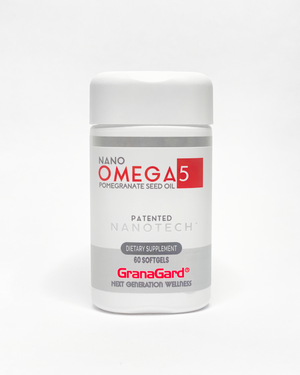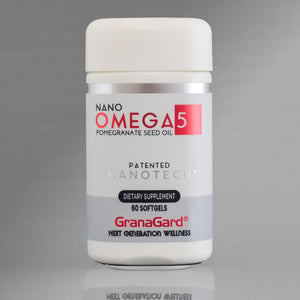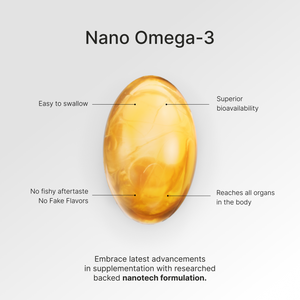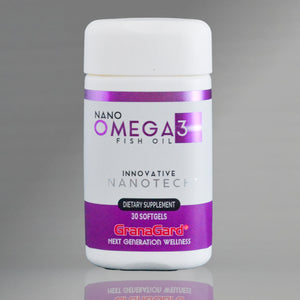The brain as an organ represents only 2% of our body weight, yet it consumes 20% of the oxygen we breathe. This high metabolism that occurs within it, with such a high oxygen rate, makes it the most vulnerable organ to oxidative stress, with the consequent predisposition to neurodegenerative diseases such as Alzheimer's or Parkinson's.
How we obtain energy and how oxidative stress can be generated

All the cells in our body obtain their energy through metabolism. Nutrients such as glucose are processed to obtain ATP molecules, which are like energy packets that the cell requires to perform its normal functions; if it's a myocyte (muscle cell) to contract, if it's from a gland, to produce the respective hormone, and a neuron to establish connections with others, besides producing and releasing neurotransmitters, which are the substances that allow messages to be transmitted from one neuron to another through connections. The metabolic process develops through various biochemical reactions, and in many of them, ROS (Reactive Oxygen Species) are generated, including free radicals. They have a high oxidative power, being able to oxidize and damage other biomolecules in the cell, such as lipids, proteins, and even DNA. Fortunately, our body is equipped with an antioxidant system (What are antioxidants in simple words) that has the ability to neutralize ROS and free radicals. This system is composed of a series of substances and enzymes, but its production decreases with age, generally starting to decline between the ages of 40 and 50, so the balance begins to break, with oxidation predominating over antioxidation, which will trigger what is known as Oxidative Stress. (Oxidative Stress myth or reality)
Why the brain requires antioxidant protection

The generation of ROS and free radicals is not the same in all organs; it depends on the metabolic rate of each one, the amount of energy their cells require to perform their normal functions. If there is one organ that requires special attention and protection against oxidative stress, it is the brain. Let's see what makes it so vulnerable. The brain represents no more than 2% of our body weight, yet consumes 20% of all the oxygen we breathe, it is totally dependent on oxygen. Neurons, due to their long axons, have a large cell surface, which requires a high production of energy by mitochondria. The metabolic pathway through which this energy is produced is the great generator of free radicals, capable of inflicting oxidative damage. To give an idea: the brain has between 1011―1012 neurons, and each one requires 2 x 1021 ATP molecules at every moment of activity. The production of all this will generate large quantities of free radicals.
Neurons do not store glycogen; all the substrate for their metabolism is the glucose that reaches them through the blood. When glucose metabolism in the brain is interrupted, a large number of ROS (Reactive Oxygen Species) are generated. More than 50% of what would be the weight of a neuron is made up of membrane lipids, most of them polyunsaturated fatty acids susceptible to lipid peroxidation, which deteriorates them. Once lipid peroxidation occurs, it can propagate like a domino effect. In the end, it can lead to the destruction of the membrane and, therefore, of the neuron. Neurons communicate with neurotransmitters, and some of them, such as dopamine and serotonin, generate ROS when metabolized. The risk of the brain being a victim of oxidative stress is very high. The damage from oxidative stress is not evident from one day to the next; it is cumulative. If the damage is moderate, we will initially see cognitive abilities affected: attention, concentration, memory… (Antioxidant Supplement for Short Term Memory Loss) If the damage is severe, neurodegenerative diseases such as Alzheimer's or Parkinson's may manifest.
Where we get antioxidants

Antioxidants are fundamental for our brain, especially if we have already passed the fourth decade of our lives. We must ensure that we consume a diet rich in antioxidants, (What are the best antioxidant foods) and if we are not sure or it is not possible to have it daily, we should supplement it with antioxidant supplements. (Why take antioxidant supplements) The best antioxidant supplement Not all antioxidant supplements work the same, nor do they have the same efficacy. Antioxidants differ in physicochemical characteristics such as solubility; some can dissolve in fats but not in water, while for others it is the opposite. On the other hand, they have different mechanisms of action: while some simply trap free radicals to neutralize them, others have a multiple mechanism of action that goes beyond trapping free radicals; they also stimulate the production of internal antioxidants. When we talk about the brain, we must consider that this organ is protected by the Blood-Brain Barrier, which is selective in what can or cannot reach the brain. Most antioxidant supplements do not reach the brain because of it. Nano Omega 5 (What are the benefits of Omega 5) is a powerful natural antioxidant with a multiple mechanism of action, extracted from pomegranate seed oil, and has been subjected to a nanotechnology process, (What is Nanotechnology in simple words) transforming it into a nanoemulsion, which allows it to mix in aqueous or lipid media. This characteristic, in addition to its nanometric size, gives it better and greater absorption and provides it with the ability to cross the Blood-Brain Barrier, reach the brain, and protect it with all its antioxidant power. If you want to protect your brain against oxidative stress, do it with Nano Omega 5 from GranaGard®, and if you are over 50 years old, Start Now!





